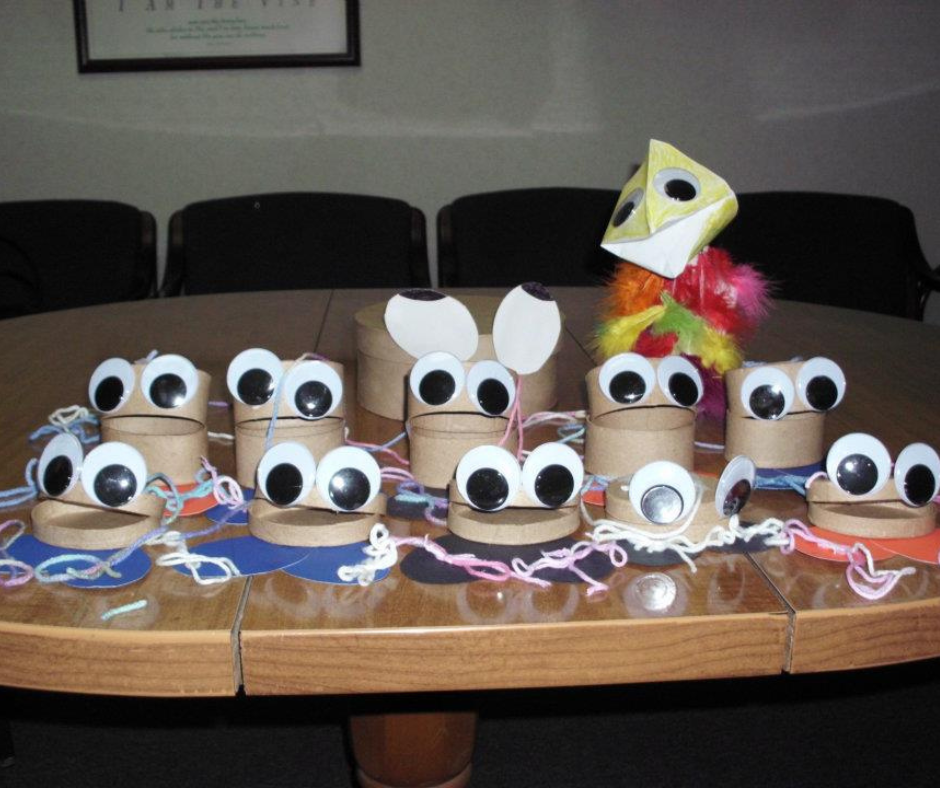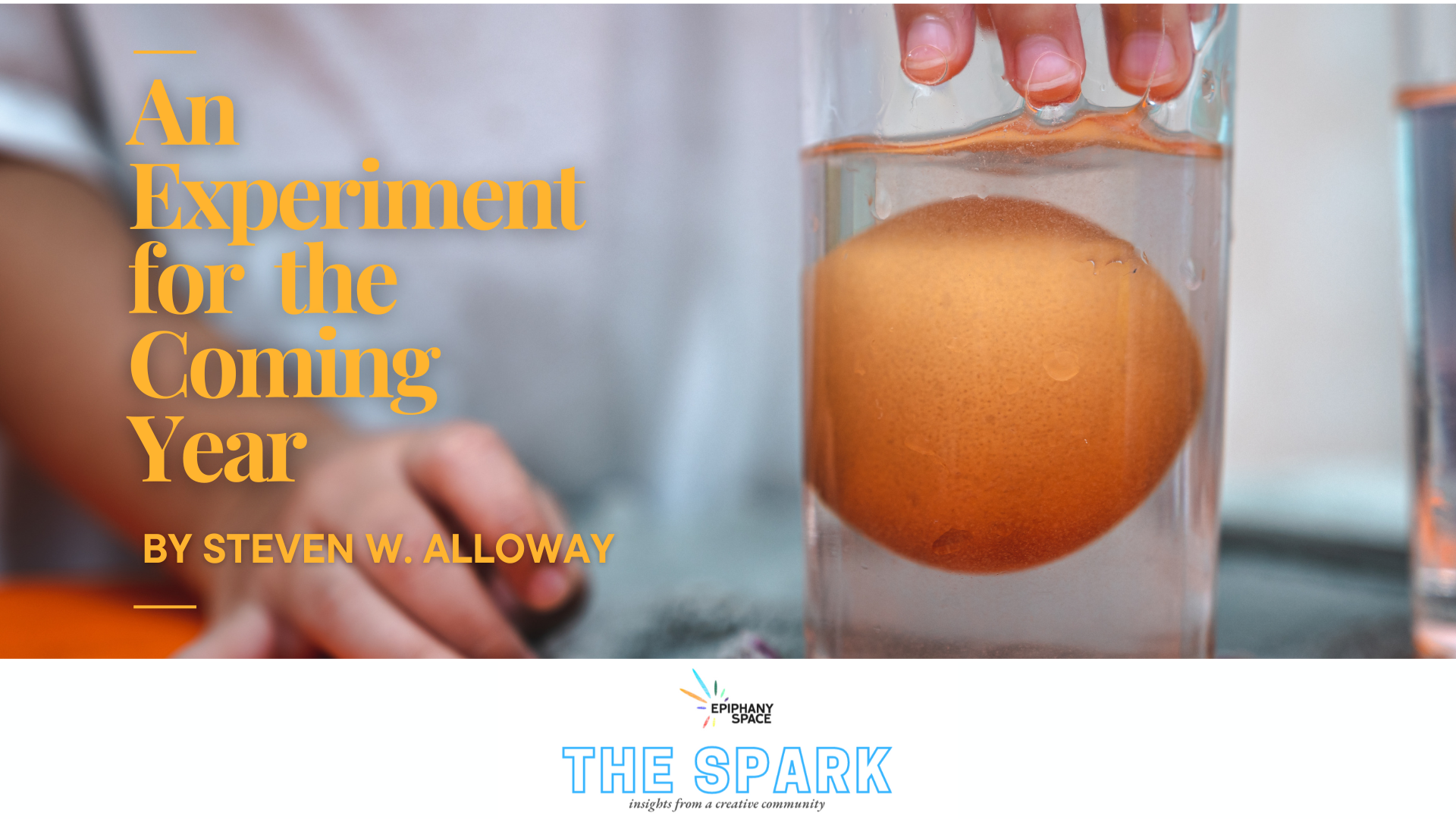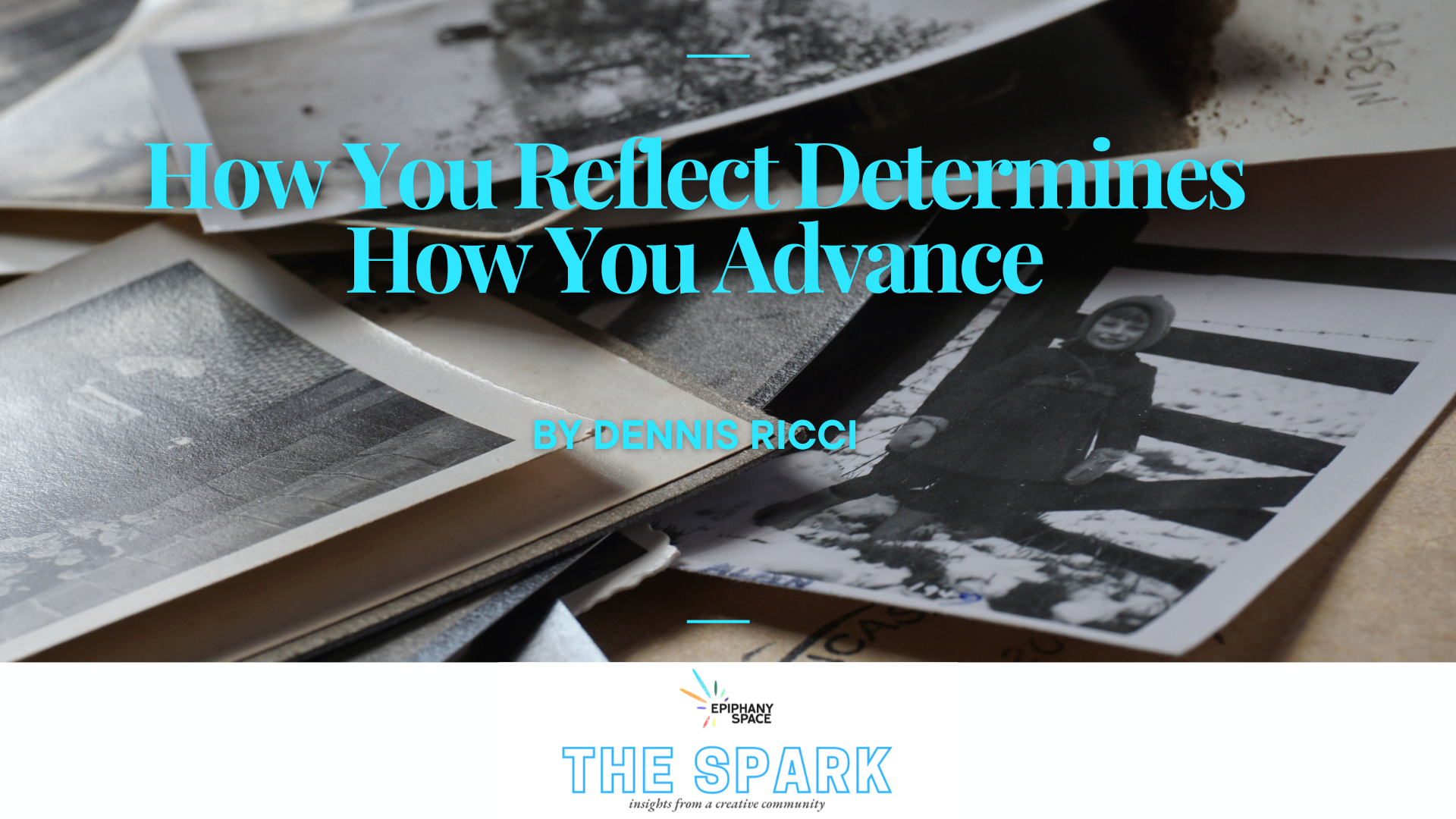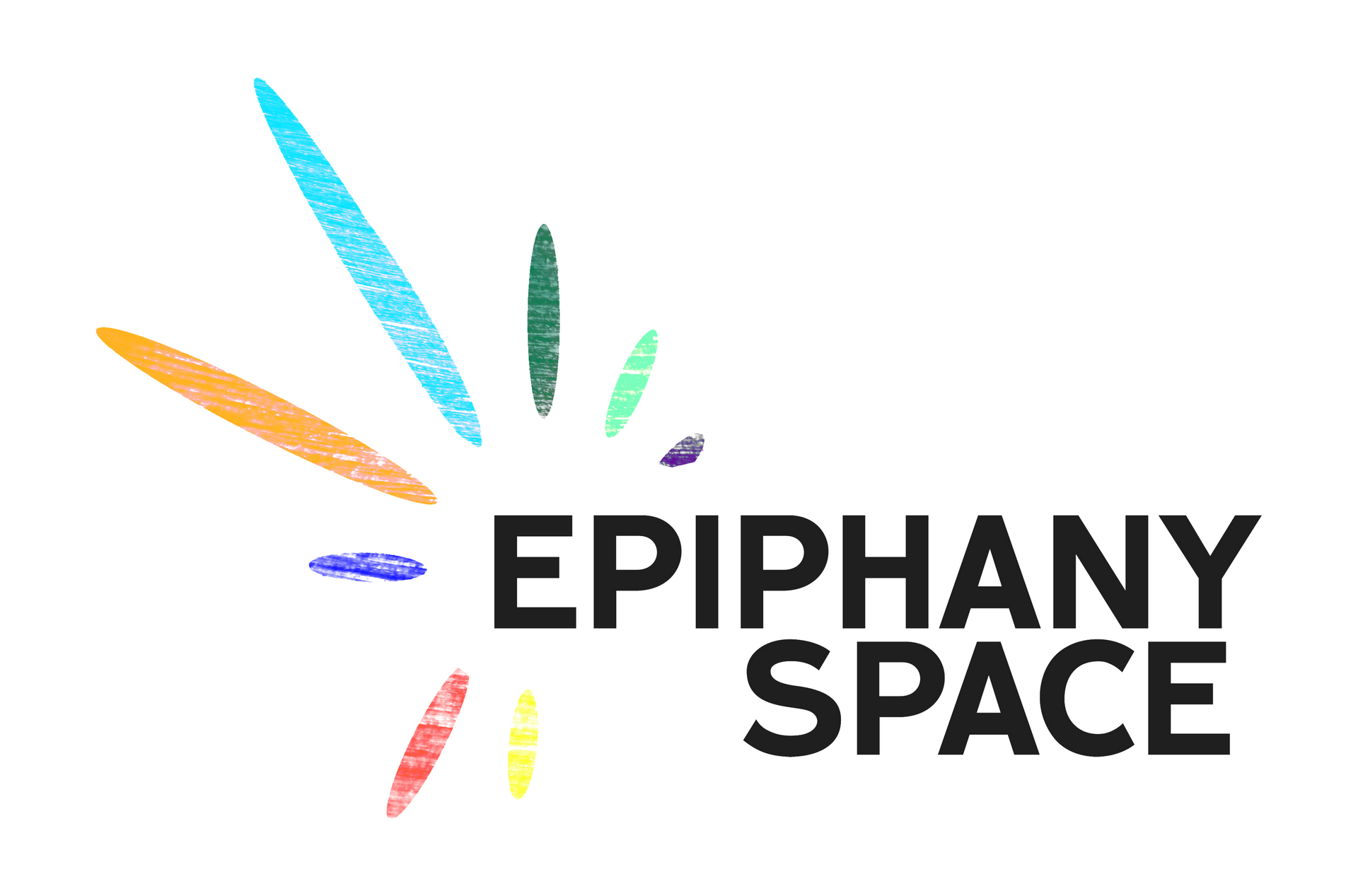Article
Being Bad at Things for Your Own Good
Being Bad at Things for Your Own Good
By Steven W. Alloway
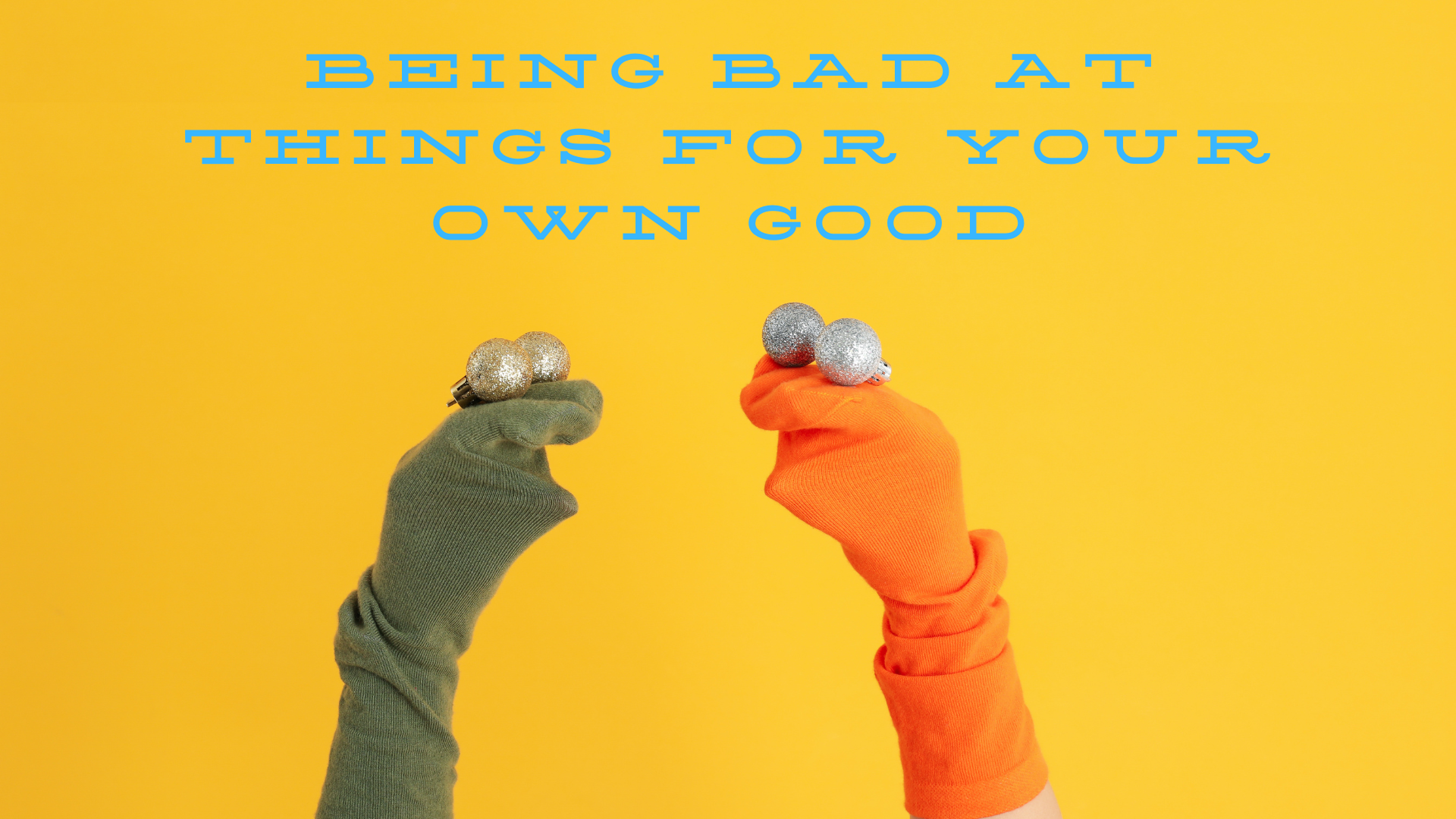
In my Spark article a couple of weeks ago, I talked about how I enjoy making puppets. What I didn’t mention is that I am actually very bad at it.
“Oh, Steve, I’m sure you’re just being modest.”
No. I am exceedingly bad at puppet-making. On multiple occasions, when preparing for puppet-based shows, I have had cast members refuse to use the puppets I made for them. They’re always polite about it, of course. But one look at the blobs of paper and Scotch tape that I hand them, and people’s first reaction is always, “Oh, I’ll just make my own instead.”
But that doesn’t stop me from making puppets. I still enjoy the process of taking socks and envelopes and whatever else I have on hand and turning them into characters. I still use them myself, even if no one else will. I even take a certain amount of pride in them, even though I know that, no matter how much I practice, I will never approach the talent of my idol, Jim Henson.
There’s something very freeing in the practice of doing something that you’re bad at. It is, in my opinion, an important aspect of the Power of Play. Here are a few of the benefits of exploring the things you can’t do.
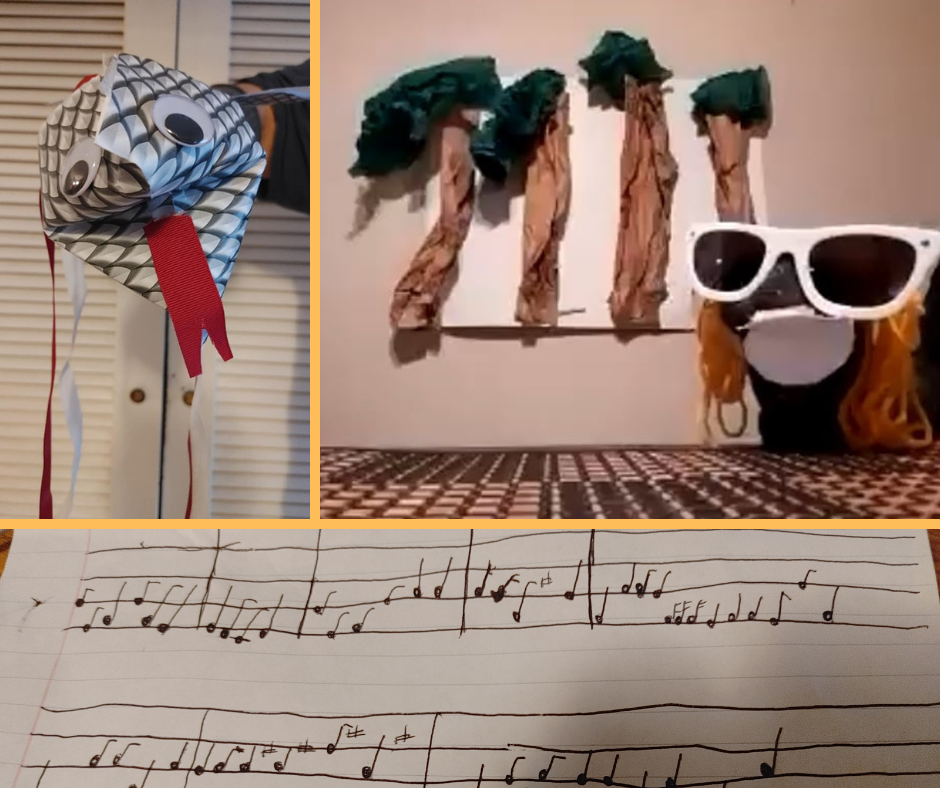
The Freedom to Make Mistakes
I’ve talked before about perfectionism and the problems it can cause. When you’re doing something you’re good at, the fear that it might not be as good as you want it to be can hinder your progress or prevent you from releasing your work to the public.
When you’re doing something you’re bad at, mistakes are part of the package. You don’t know what you’re doing, so you know you’re not going to do it right. You just do it the best you can. If something goes wrong, you can try to correct it, you can start over, or you can just push through and see what happens. The choice is yours. But whichever you choose, you don’t have to let those mistakes embarrass you or frustrate you. They’re just part of the process.
Here’s the thing, though: mistakes are part of the process when you’re doing things you’re good at, too. The best musicians still hit a wrong note every now and then. Bestselling authors still have terrible first drafts. For myself, I’ve baked more brownies than I can count, but I’m currently working with an oven I’m not familiar with, and they keep coming out massively underdone. It’s beyond frustrating. But it’s part of the process.
Doing something where you have the freedom to make mistakes without consequences can make it easier to bear mistakes in other aspects of your life. Accept it. Choose how you want to deal with it. Then move on. The more practice you can get in doing that, the less you’ll cling to perfectionism and the more open you’ll be to going with the flow. Mistakes are how we learn. And whether you’re just starting out with something or the world’s foremost expert on it, there’s always something more to be learned.
No Opinions, No Pressure
The fear of mistakes goes hand in hand with the fear of what other people will think. Submitting your work to the opinions of others is nerve-wracking. Even if there are no mistakes, per se, there’s the worry that what you’re producing isn’t up to the standard that your audience is expecting.
If I’m, say, doing a play, will the audience laugh in the right places? Will they understand the point I’m trying to make, or just give it a dismissive, “It was cute”? If any of my theater friends are in the audience, will they be comparing it to the play they saw last week that had better sets and costumes?
But the things you’re bad at… Ideally, you do them just for you. There’s no standard to meet. There are no people to impress. No opinions to worry about. It’s just about the act of doing it and the satisfaction that you get from it.
“But Steve, weren’t you talking earlier about giving your shoddy puppets to cast members and having them be summarily rejected?”
Well, yes. But that’s just because the concept of doing things you’re bad at for their own sake is something I’m still learning for myself. And in fact, hearing other people’s opinions of my puppets is one of the things that’s helped to drive the lesson home for me.
Other people don’t like my puppets. But I like them. They’re nowhere near Muppet standards and never will be, but I think they look pretty cool, and I’m proud of them. So I’ll make them for myself, and I’ll use them for myself, and I’ll enjoy it. And you can’t stop me. So there.

Rekindling Old Passions
Sometimes, the things that you’re bad at are things that you used to be good at. For me, this makes it even more frustrating. I used to be able to do this! Why can’t I do it anymore? What’s the point of continuing to try, when I see how far short it falls of what it used to be?
When I was a kid, I used to play piano. In fact, I was pretty good! I was never able to sight read, but after several years of lessons, I had a pretty good repertoire of pieces I could play, including some fairly complex/difficult ones.
Eventually, though, I stopped taking lessons. When I stopped taking lessons, I stopped practicing, and when I stopped practicing, I lost most of the skills I had developed. I can still read music. With effort, I can still pick out a melody. But it’s been ages since I’ve been able to sit down and play a song.
For years, I’ve been saying, “I should start practicing again,” and for years, I’ve not done it, mostly because I know how much I’ve lost and don’t want to confront the fact that I’m now bad at something I used to be good at.
However: the house where I’m staying for the summer has a piano. So occasionally, I’ll sit down and mess around on it. Just plinking out melodies and occasionally jotting down some chicken-scratch notes on a piece of paper… But you know what? It’s fun. No, it doesn’t sound like it used to. But there’s nobody around to hear it but me and the Corgis, and if they’re judging me, they’ve got the good manners to keep it to themselves.
I’m sure most of you have things like that too: things you used to be good at, but that you gave up, for one reason or another. So now you don’t do it anymore, because you can’t give it the time, the effort, the commitment that you used to. Well, I’m here to tell you, you don’t have to. Just mess around once in a while and see what it’s like. If it was fun before, chances are, it’ll be fun again.
Broadening Your Horizons
In addition to getting back to old things you used to enjoy, embracing things you’re bad at allows you to try new things and gain a new perspective. Which can in turn benefit you in the art that you ARE good at.
For one thing, any art is stimulated by new experiences. Doing new things gives you new ideas and helps you push your own boundaries and expand your limits. It also helps stimulate the brain in different ways, forging more neural pathways and increasing your overall brain activity—which in turn helps you in your creativity. On the other hand, if the only artistic endeavors you engage in are things that you’re already good at, then you’ll just end up in a rut, dealing with creative blocks.
Getting Better
Now, I know some people will try to fight me on this. I’ve seen articles and memes arguing that doing things you’re bad at isn’t about getting better at them, but about enjoying those things for their own sake.
I agree with that to some extent. If you’re worrying that you’re not good enough or comparing yourself to others who are better, then you’re missing the point of doing things you’re bad at. But that doesn’t mean you can’t still be proud of your progress. And if you keep at it, you can’t help but make progress.
Now, I know I’ll never be Jim Henson. No matter how much I practice and hone my skills, I’ll never even get close to that level of talent in my puppet-making. If I use that as my metric, I’ll only make myself miserable, and I won’t get any of the benefits of doing something that I’m bad at.
But even so, my puppets are better now than they were a few years ago. I’ve learned some cool new tricks. I’ve incorporated some different materials. I’ve gotten more of a feel for functionality and how to make them so they can be operated better.
They still leave a lot to be desired. They still use considerably more Scotch tape than I imagine Jim Henson ever did. But nonetheless, I’m proud of the puppets that I’ve made and the things I’ve been able to do with them. When push comes to shove… Maybe they’re not so bad after all.
